Research
Reasearch Projects

Cyanobacteria bloom, Lake Kastoria, Greece
Biodiversity and Harmful Algal Blooms
While phytoplankton assemblages can be diverse in a spectacular way, sometimes this diversity collapses, especially during harmful algal blooms. Fish-killing golden algae blooms and cyanobacteria scums are problematic globally. Our research focuses on the ecology of these problematic species, and seeks to discover the mechanisms that lead to bloom formation and termination, and possible strategies for management.
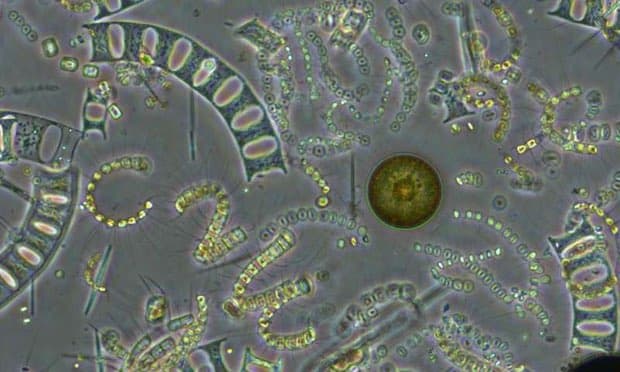
photo at Phys.org
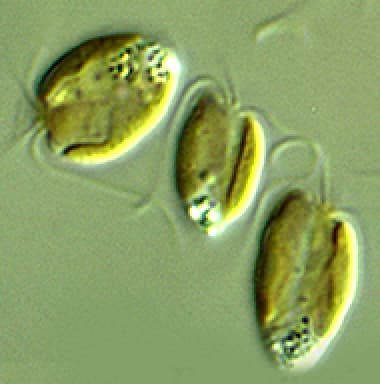
Prymnesium parvum, photo by SOLITUDE Lake management.
Prymnesium parvum (Golden Algae)
In the southcentral USA, widespread fish-killing Prymnesium parvum blooms proliferated around the turn of the century. My lab contributed significantly to the research on the ecology of these blooms. Prymnesium parvum has not yet established itself in coastal bays in this region, despite being transported there. My lab has been investigating why. Preliminary results indicate that viral-sized particles in bay waters inhibit the growth of P. parvum, as do bacteria-sized particles. This suggests that viruses and algicidal bacteria may prevent P. parvum from blooming in our bays.
Cyanobacteria (Bluegreen Algae)
My lab also documents harmful cyanobacteria in lakes of the south-central USA, aiming to understand the links between land-use practices, inflows, nutrient loadings, microbial interactions, and impacts on biogeochemical cycles. Findings indicate that microcystins are negatively affecting microbial processes, including nitrification and denitrification, which could lead to nitrate buildup in these systems. This condition may promote more cyanotoxin production, creating a positive feedback loop that stabilizes blooms.
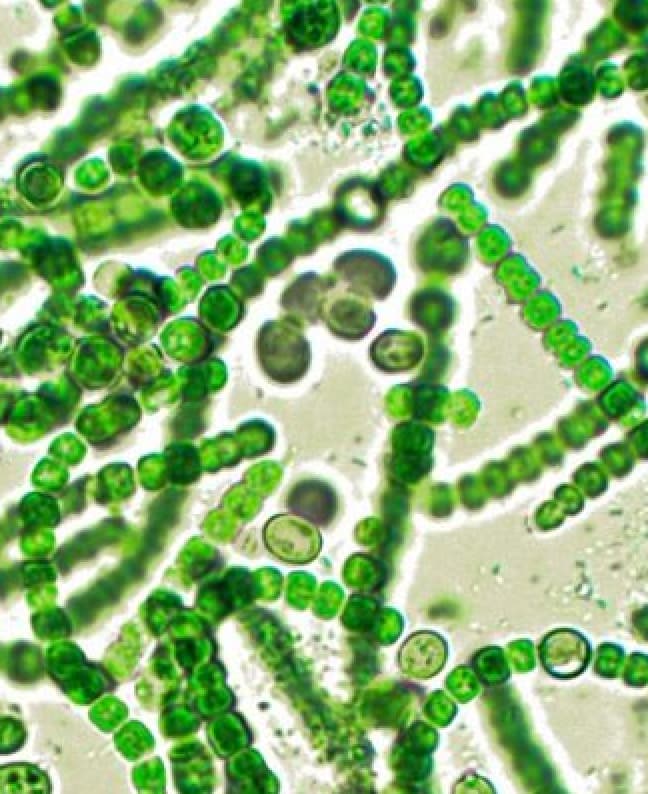
Toxic cyanobacteria, photo by Oklahoma State Environmental Laboratory Services
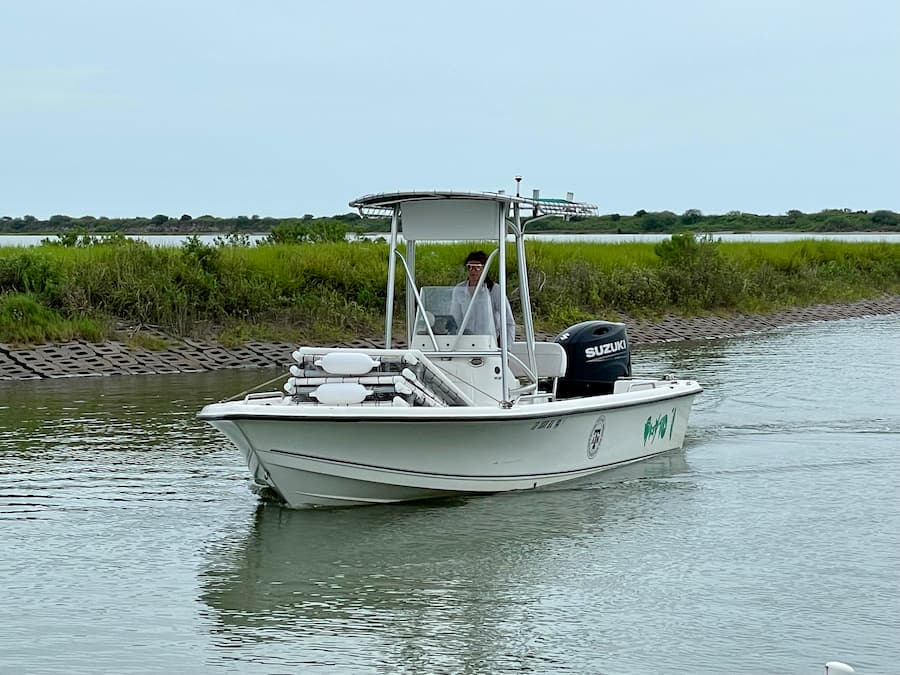
Sampling Texas bays
Inflows and Lower Trophic Level Responses
Inflows act as disturbances to phytoplankton and benthic algae systems, not only bringing new nutrients to water bodies but also causing hydraulic displacements of resident organisms and ambient nutrients. But these disturbances often result in succession resets, a phenomenon crucial to food web health and biogeochemical cycles linked to ecosystem hypoxia events in lakes, rivers, estuaries, bays and coastal oceans.
Theoretical and Empirical Ecology
A good portion of our research explores theoretical underpinnings of the mechanisms that sustain biodiversity in plankton systems and attempts to predict succession dynamics. This theory requires empirical testing, which we do through laboratory microcosm experiments, in-field mesocosm experiments and whole-system monitoring.
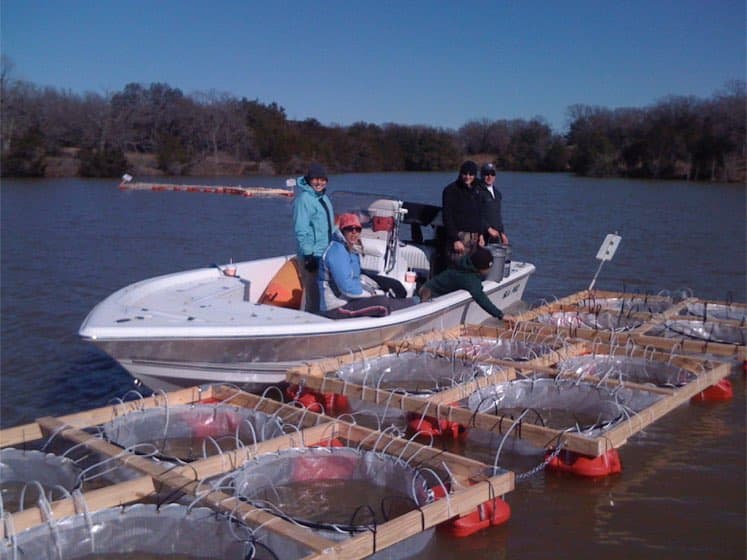
experiments in the Lake Whitney, Texas
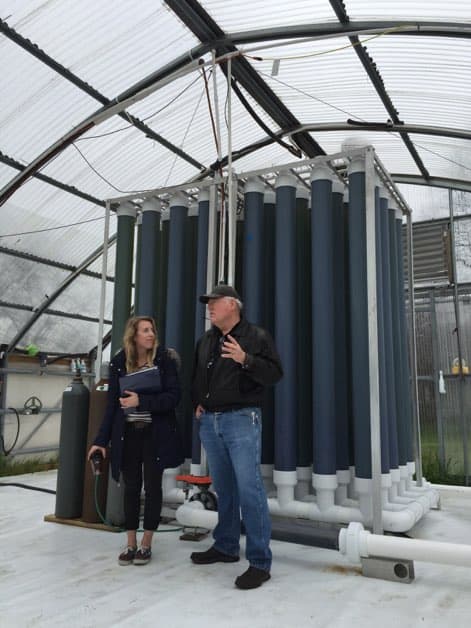
AlgEternal Technologies, Weimar, Texas
Algae as Biofuels
Our work currently applies ecological theory to algal bioreactor design and operation approaches, where the goal is to maximize biomass production and increase stability of the production system by manipulating complementarity in polycultures.
Oyster Aquaculture
A limiting factor of production in oyster hatcheries is the high mortality that occurs during metamorphosis. Work in my lab seeks to minimize this mortality through better nutrition for oyster veligers. The research approach uses varied culturing techniques, multiple microalgae species growing at different growth stages, and optimized microalgae culture mixtures to best match the fatty acid and amino acid profile of the feed to the demands of the veliger.
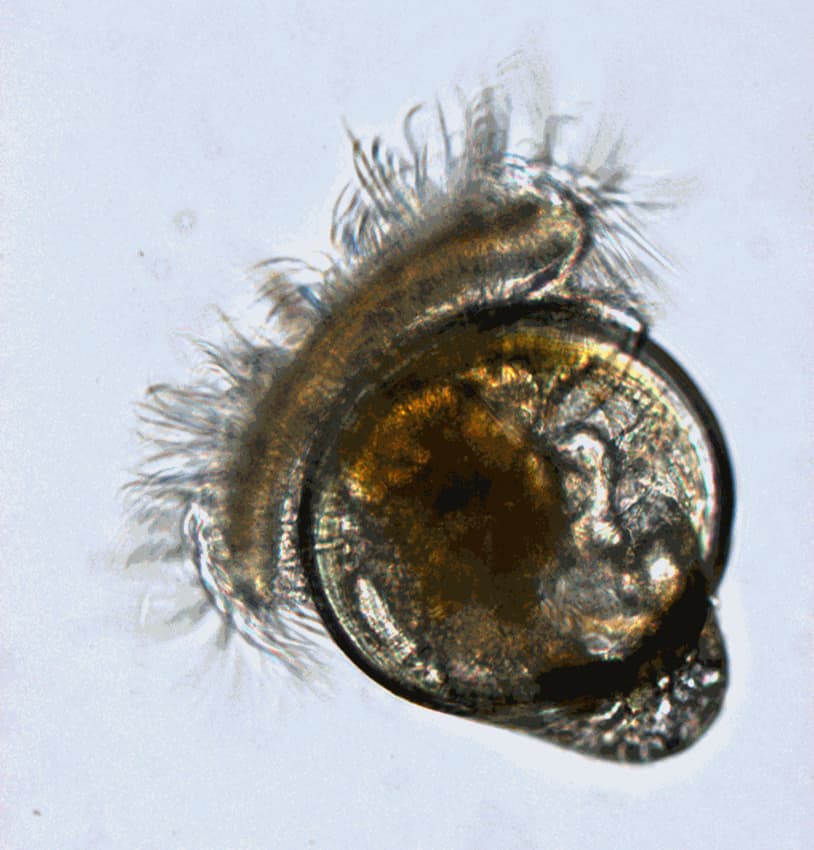
Oyster Larvae